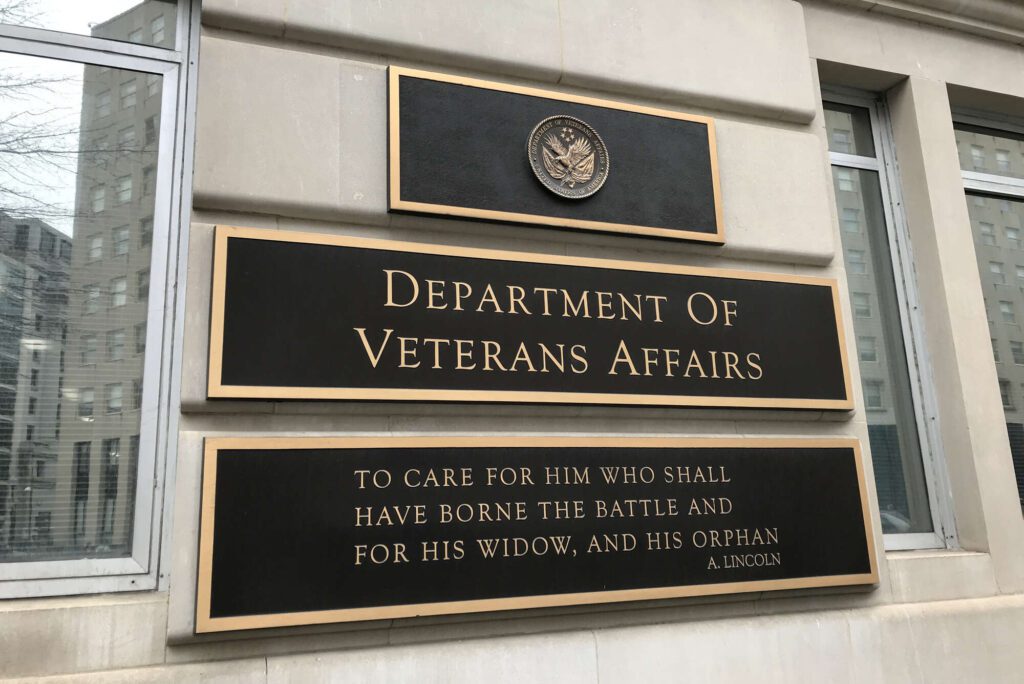An IT glitch at the Department of Veterans Affairs is delaying the payment of education benefits for thousands of veterans’ surviving children and spouses.
The VA, through its Survivors’ and Dependents’ Educational Assistance program, part of the GI Bill, pays education benefits for the children and spouses of veterans or service members who have died, been captured or are missing, or are totally disabled from a service-connected disability. The payments help eligible students pay for school or cover expenses while training for a job. Full-time students enrolled in this program receive nearly $1,600 each month from the VA.
The VA, in its latest contingency plans, said education benefits would be unaffected by a government shutdown, and would continue to be paid out on time. But the department has furloughed the IT staff who are able to fix this issue, and the department’s GI Bill hotline is also closed during the shutdown.
VA Press Secretary Pete Kasperowicz said in a statement that some VA education benefits payments are behind schedule “due to the combined effects” of recently moving to a new claims processing system, a high volume of fall enrollments and the government shutdown.
“VA had planned additional systems enhancements to speed up the process and automate a large batch of these claims, but the Democrats’ government shutdown prevents the department from doing so,” Kasperowicz said.
Kasperowicz said any student dealing with delayed payments will be paid in full as soon as possible. The VA expects it will take until late November or early December to fully resolve the issue.
So far this month, the VA’s average processing time for these claims is about 49 days.
Ashlynne Haycock-Lohmann, director of government and legislative affairs at the Tragedy Assistance Program for Survivors (TAPS), told reporters on Monday that the VA had updated the IT systems that handle these education benefits payments this summer. The VA in September reported a glitch to Congress that impacted education benefits for about 900 individuals.
Lohmann, however, said the department underestimated the impact of the glitch. In reality, she said it may have delayed payments for up to 75,000 student beneficiaries.
“VA never put anything out on out to schools. They never let the schools know that there was a problem. They never let students know that there was a problem. They told Congress it was a minor glitch. They have never taken accountability for what has happened here,” Lohmann said.
Jonathan Mackey, a senior at Southeastern Louisiana University, said he only received a partial payment of $839 last week, about $500 short of his usual monthly payment. He said the partial payment has made it harder to cover living expenses this month. Mackey, whose late father served in the Iowa National Guard, said VA’s “lack of community and accountability” has been a major source of frustration.
“Calls to the VA education have been unanswered, and we weren’t informed about the processing delays before the shutdown,” he said. “While we’re told by the schools that we’ll receive back pay eventually, we don’t know when that eventually is. And that doesn’t really help us pay the bills or feed ourselves in the meantime.”
Kaanan Mackey-Fugler, Mackey’s mother and a surviving spouse who forfeited her survivor benefits when she remarried, said this is now the third semester she’s had to step in and cover living expenses for at least one of her adult children, while they wait for reimbursement from the VA.
“Before the shutdown, we were told that our benefits wouldn’t be affected. Yet, here we are. Students and families across the country are desperate, and they’re anxious about how they’re covering bills month to month while our system’s still stalled out,” Fulger said.
Lawmakers have reached a deal to end the government shutdown, which should make it out of Congress and onto President Donald Trump’s desk later this week. But Will Hubbard, the vice president for veterans and military policy at Veterans Education Success, called on the VA to immediately reopen the GI Bill hotline and bring back furloughed IT staff to expedite claims processing.
“While there’s a deal in the works with the shutdown coming to a conclusion, every single day counts,” Hubbard said. “You have to understand that if a student is missing their payment, they’re wondering what’s going to happen the next day – not in three days, not in five days.”
In a recent survey of over 2,400 students, the National Association of Veterans Program Administrators (NAVPA) found that more than 1,000 reported payment disruptions, and that 740 of them attributed those delays directly to the shutdown. NAVPA President Camden Ege said students have been told to reach out to their schools if there is a problem with their VA education benefits, but said schools “don’t have those answers.”
“While the immediate cause stems from a technical glitch in VA systems, the government shutdown has made matters worse,” Ege said.
Joe Wescott, national legislative liaison for the National Association of State Approving Agencies, said that the VA should have alerted schools to its IT problems before the shutdown.
“The beginning of the fall term, this is not a good time to roll out an IT fix, about which there is uncertainty – not at all,” Wescott said.
Copyright
© 2025 Federal News Network. All rights reserved. This website is not intended for users located within the European Economic Area.

